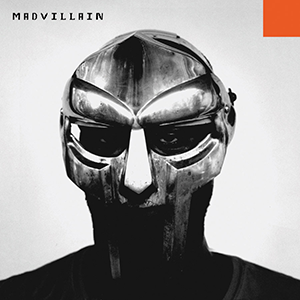
Since 2007’s highly acclaimed debut “Cross,” electro house group Justice has built up a steady amount of anticipation for the French duo’s sophomore effort “Audio, Video, Disco” – roughly “I hear, I see, I learn” in Latin for that seldom-tapped dead language demographic –which was released on Oct. 24. Following the massive success of “Cross,” Justice needed something big for fans and critics alike to follow up one of the more remarkable electro debuts of the last decade. “AVD” may be a bit of a departure for some hardcore fans, but it also sees Justice spread its wings a bit and incorporate some very interesting stylistic elements into its already fire-proven blend of electro house and nu-disco.
It’s been apparent for some time that the French dynamic duo of electro have a soft spot not only for classic Italo-disco but also for aggressive rock music – check the samples of Franz Ferdinand’s “The Fallen” and Metallica’s “Master of Puppets” on their live album “A Cross the Universe.” Those who guessed these out-of-genre penchants would thematically permeate into Justice’s second album were undoubtedly correct – “AVD” is a sleek hybrid of slick, sexy electro and groovy yet grandiose rock n’ roll.
While Justice retain their dancefloor-shaking four to the floor rhythms and bittersweet distorted synths, they eschew their usual brand of chop-slap bass lines and party anthem aesthetics on “AVD,” trading them for ’80s heavy metal inspired head-banging and intricate compositional arrangements straight out of the ’70s classic prog rock playbook. Justice have done something fairly awesome here, in that they have melded the elements of immediacy and ear-candy of electro house with the depth and complexity of progressive rock, plus a dash of primal hard rock aggression.
Take the second track, “Civilization,” which features British solo artist Ali Love on vocals. In addition to deftly sampling the multi-generational rock n’ roll genius of both Rage Against the Machine and The Who in one tune (“Killing in the Name” and “Baba O’Riley,” respectively), Justice seamlessly merge snarling guitar-synths and surging house beats with an undeniable chorus – courtesy of Love – that could survive indefinitely in both a club and an arena rock concert.
Similarly, tracks like the groovy “On’n’on,” featuring Diamond Nights lead vocalist Morgan Phalen on vocals, show Justice’s sonic evolution in full form. While “On’n’on” sports the insatiably funky feel Justice is known for, its start-stop percussion heavy rock n’ roll execution is reminiscent of John Paul Jones penned Zeppelin tunes, while the melodic, flute-like synth solo section conjures distinctly Jethro Tull-ish impressions.
“AVD” isn’t what one would technically call “rock music,” but it is music that “rocks” considerably, sporting clearly audible inspiration from the likes of Rage Against the Machine, Genesis and Boston. If “electro n’ roll” should exist, it should probably sound like this. The song “Newlands” sounds as close to AC/DC as any electro house group could dream to, complete with an unabashed, chugging hard rock bridge.
In addition to its rock tendencies, “AVD” also shows Justice maturing in the compositional and arrangement department since their debut. While there was nothing inherently wrong with the comparatively sparse musical structures of the tracks of “Cross,” Justice has really kicked it up a notch on this album with some lush and complex arrangements. This is especially true on some of the instrumental songs off of “AVD,” wherein Justice show that they can still succeed without relying on an earworm hook or a club-happy chorus.
There’s certainly a sense of swelling grandiosity in some of these tracks, due in no small part to Justice’s apparent admiration for classic prog rockers like Yes, who were often known for utilizing classical musical techniques to enrich and enliven their compositional arrangements. Justice clearly follows suit. “Brainvision,” a three-minute mini-odyssey of guitar and synth duality, sounds like a J.S. Bach prelude commissioned for a Super Nintendo side-scroller soundtrack. Its follower “Parade” is equal parts rousing choral march and Queen tribute.
For a 45-minute long affair, Justice certainly packed a lot into “AVD” stylistically speaking. Check out “Canon” for instance, one of the album’s most schizophrenic and challenging tracks. The first half of the song shows Justice pushing the hard rock envelope, sounding like a grunge band made up of only keyboard players. The second half morphs into something that Beethoven might have written if LSD was popular in 19th century Vienna, with ascending rapid-fire arpeggios that eventually join with the earlier rock riffage motif.
“AVD” is Justice’s “Led Zeppelin III.” These musical themes have been noticeably bubbling under the surface since their debut, but it is here that they truly spring out and add some range to their repertoire and their style.
Will some fans be alienated because they just want to hear “D.A.N.C.E.” over and over again instead of a throwback-rock-meets-electro record? That’s just how the cookie crumbles. But not only is this record a bold step in a new direction for Justice, but it has both the quality and accessibility to have major crossover appeal. This is the album that could make classic rock fans give electro-house music a listen, or maybe make electro-house fans appreciate AC/DC and Queen – a fairly ambitious way for Justice to avoid the sophomore slump.
Dave Coffey can be reached at [email protected].












